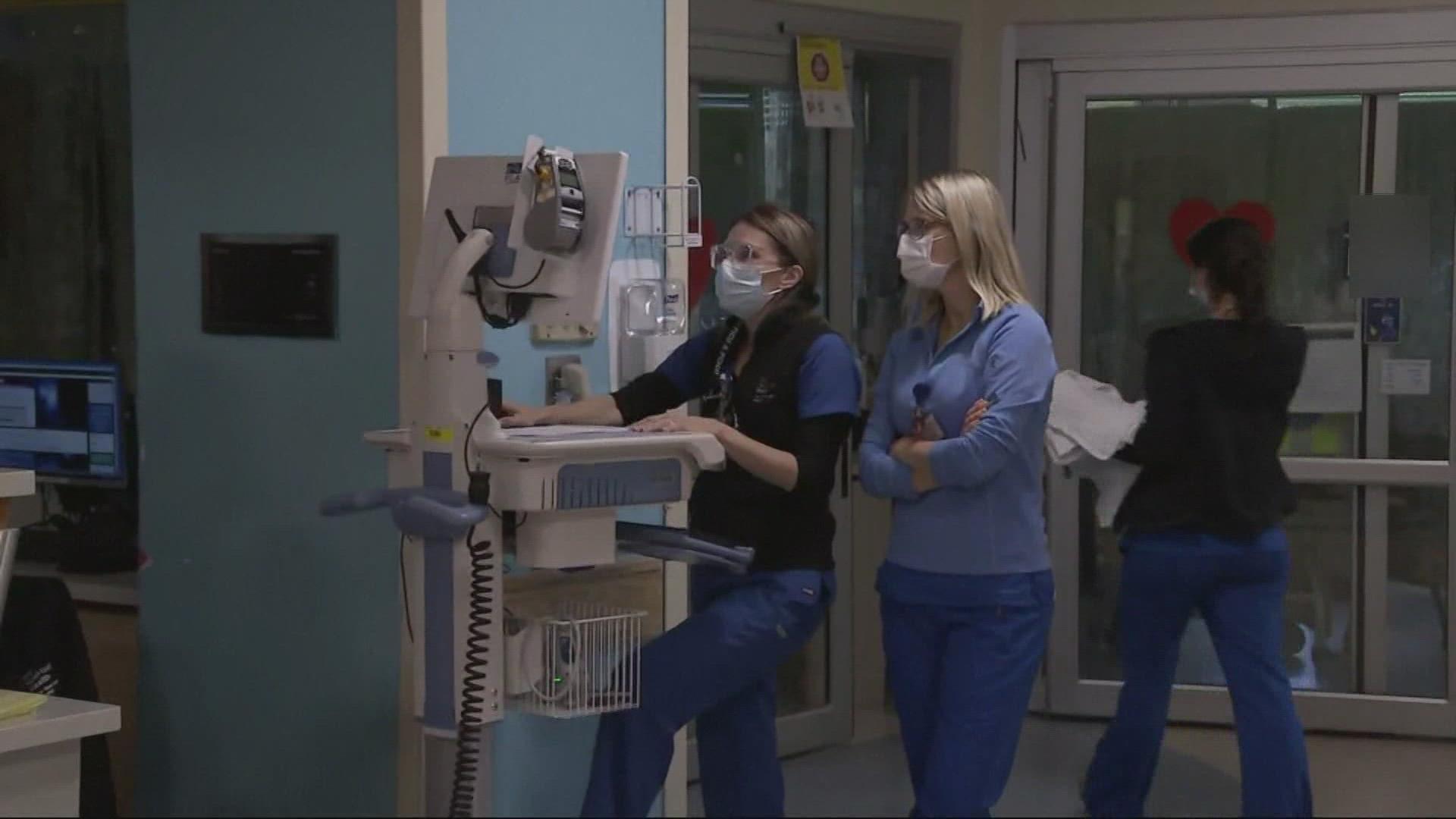VANCOUVER, Wash. — Everyone is looking for a break after long years living with COVID-19, but the coronavirus is not done with us yet — and health officials warn that it's accompanied by a strong onset of RSV, or respiratory syncytial virus, and what is developing into a severe flu season.
There are a variety of viruses circulating out there, with RSV affecting young children the worst. All this has hospitals in both Washington and Oregon beyond stressed.
In fact, local pediatric hospitals are working in crisis mode to accommodate all the young patients. And emergency rooms at all hospitals are packed.
“In Clark County we're seeing a significant increase in respiratory illness, and it's gotten to the point where it's having an impact on our local urgent cares and hospitals,” said Dr. Alan Melnick, Clark County Public Health director.
The impact at PeaceHealth Southwest Washington Medical Center is real — a hospital that normally would average between 280 and 310 patients right now is virtually full, caring for up to 380 patients, and an emergency department with 42 beds is holding 120 to 130 patients.
“We're seeing people wherever we can, we're opening up new units, we're getting a lot of support from the hospital in terms of being able to see patients in other areas. But at a certain point there are just a lot of people needing care at once,” said Dr. Jason Hanley.
The medical director of the PeaceHealth Southwest Emergency Department commends his staff for stepping up to meet the need. But public health officials say there are ways that we can help.
Clark County Public Health wants people to be aware and take precautions, to avoid getting sick if possible. That starts with vaccinations. Melnick strongly encourages everyone eligible to be up-to-date on both COVID-19 and influenza vaccines and boosters.
“I don't think there's anything abnormal about going in and getting a vaccine," Melnick said. "It's pretty quick, it's pretty easy and it's incredibly safe.”
Melnick said that if you or your child do get a respiratory illness with mild symptoms, start by treating them at home. If there is no improvement or worsening of symptoms, call your primary care provider first, or go to an urgent care clinic if needed.
“Certainly if you or your child are struggling to breathe or have severe shortness of breath then you do need to get emergency care,” said Melnick.
The is no vaccine yet for RSV, which is especially hard on young children. That, along with the other illnesses, has both Doernbecher at OHSU and Legacy's Randall Children's Hospital at crisis standards of care.
“Our two pediatric hospitals are in crisis care, which allows them to be more flexible with staffing and space in order to not turn away patients or have to limit interventions for patients, but it's a sign of real distress in our hospitals and health systems across the board that I am genuinely concerned is going to get worse before it gets better,” said Dr. Jennifer Vines, Multnomah County health officer.
Vines also strongly encourages vaccinations as a way to avoid or lesson the effects of illness. And RSV is a virus that survives on surfaces, so it's important to wipe things down and wash your hands well.
Dr. Vines added that as much as people may not want to hear it, she recommends wearing masks inside public places until this situation passes. And for those at high risk, it's best to avoid public gatherings as much as possible.
Click here more information from Multnomah County on managing seasonal illnesses.

